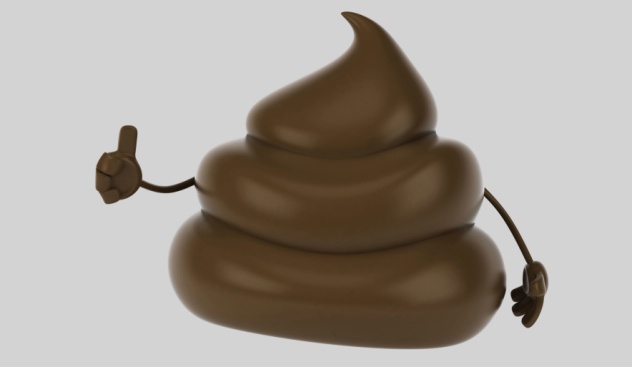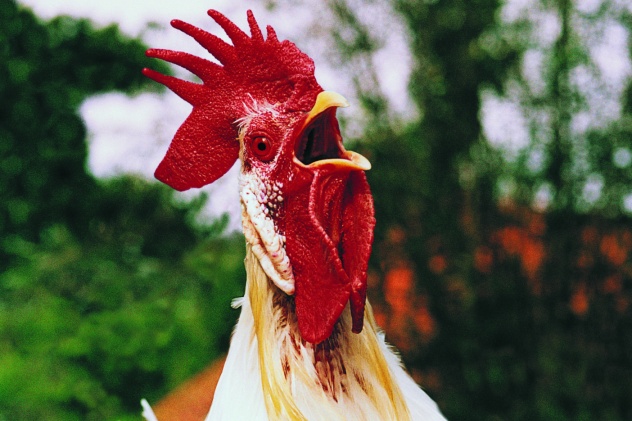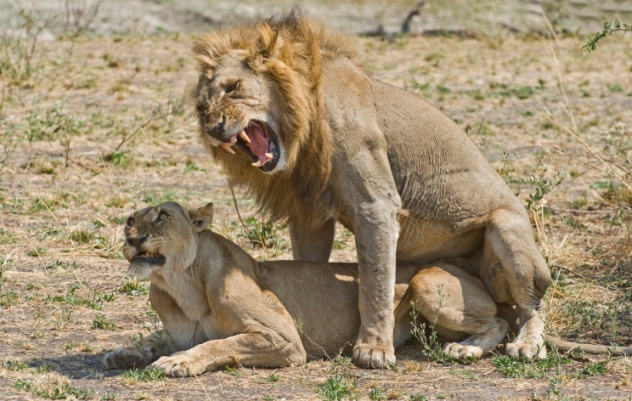 History
History  History
History  Movies and TV
Movies and TV Top 10 Damaged Detectives in TV
 Miscellaneous
Miscellaneous 10 Bleak Predictions for 2025
 Facts
Facts 10 Events from 2024 That’ll Be in History Textbooks One Day
 Miscellaneous
Miscellaneous 10 Fascinating Origins of New Year’s Eve Superstitions
 Creepy
Creepy 10 Shocking Tales of Bodies Found in Abandoned Houses
 Politics
Politics Top 10 Surprising Facts from the Life of Jimmy Carter
 Sport
Sport 10 Popular but Terrible Goalkeepers
 Technology
Technology The 10 Most Compelling Aircraft That Didn’t Succeed
 Movies and TV
Movies and TV 10 Ridiculous Riffs on Robin Hood
 History
History 10 Nazi War Criminals Who Fled to Latin America After WWII
 Movies and TV
Movies and TV Top 10 Damaged Detectives in TV
 Miscellaneous
Miscellaneous 10 Bleak Predictions for 2025
Who's Behind Listverse?

Jamie Frater
Head Editor
Jamie founded Listverse due to an insatiable desire to share fascinating, obscure, and bizarre facts. He has been a guest speaker on numerous national radio and television stations and is a five time published author.
More About Us Facts
Facts 10 Events from 2024 That’ll Be in History Textbooks One Day
 Miscellaneous
Miscellaneous 10 Fascinating Origins of New Year’s Eve Superstitions
 Creepy
Creepy 10 Shocking Tales of Bodies Found in Abandoned Houses
 Politics
Politics Top 10 Surprising Facts from the Life of Jimmy Carter
 Sport
Sport 10 Popular but Terrible Goalkeepers
 Technology
Technology The 10 Most Compelling Aircraft That Didn’t Succeed
 Movies and TV
Movies and TV 10 Ridiculous Riffs on Robin Hood
10 Offensive English Words With Hazy Origins
We were all taught that swearing or cursing is inappropriate, crass, and seems uneducated. Yet, we all do it, we always have, and we always will. Complete non-swearers may be lauded by some, but they are usually viewed with slight suspicion. Specific words are targeted as always unacceptable by some but then embraced by others who wish to break down their power to wound. Everyone also knows that curse words can be used with great rhetorical relish and succinct subtlety. These foul words often have interesting histories, but sometimes we cannot be positive exactly where and when such distinct collections of sounds developed their reprehensible or insulting meanings.
10 ‘Shit’

A piece of early 2000s viral claptrap held that the word “shit” originated from the acronym SHIT, for Ship High In Transit. The story goes that manure transported by ship had to be stored above deck to prevent it from getting wet and causing a potentially explosive buildup of methane. When people smelled it coming, they said, “That smells like shit.”
That story is utter shit. In fact, “shit” has loftier origins. The earliest form of “shit” is found in the Old English verb “scitan,” which ultimately derives from the Indo-European root skei-, meaning to cut or split, which also makes “shit” a distant relative of “science,” “conscience,” “schedule,” and “shield.” It came to Old English via the Proto-Germanic word skit-, and cognates to “shit” exist in most Germanic languages, notably the North Frisian skitj, the Dutch schijten, and the German scheissen. One Old English derivative that woefully fell out of use was “bescitan,” or “beshitten,” meaning to cover in manure or befoul.
Old English “scitan” became Middle English “shiten,” but considering that Old English “sc-” was pronounced “sh-,” it probably wasn’t a big change. For nouns, there was the Old English “scitte,” as well as the related Old English “scytel” and Middle English “shitel.” “Turd” was apparently the more common noun used before the 14th century, while “shit” was considered so taboo that it rarely appeared in print between the 17th and 20th centuries.
There were a few entertaining usages of “shit” back in the day, though. Chaucer spoke of mysterious snakes in the Far East, where “the addres shiteth preciouse stones,” and a 16th-century treatise refers to a braggart as “thou cracking shit-fire.” Given that English spelling has generally been a mess for centuries, there were also confusing occasions where the word “shuttle” became “shittle,” and the words “chit” and “shut” became “shit,” explaining a 1415 sermon with the words, “shitt the gates of heven.”
9 ‘Ass’ And ‘Arse’

Both “ass” and “arse” have been used in the English language for about a millennium, with “arse” generally referring to human buttocks and “ass” to a donkey, until Americans decided to conflate the two, confusing everyone and making Bible study hilarious. “Ass,” meaning a donkey or beast of burden, derived from the Old English “assa,” which in turn came from the Latin asinus, which itself has murky Near East origins. The use of “ass” as an insult has deep roots going back to ancient Greek fables. The Middle English expression “lik an asse that listeth on a harpe” describes a person lacking in comprehension and understanding, and “make an ass of oneself” dates from the 1580s.
“Arse,” on the other hand, derives from the Old English “aers” (which is from the Proto-Germanic arsoz) and has cognates in the Old Saxon, Old High German, and Old Norse ars, the Middle Dutch aers, and the German arsch. It goes all the way back to the Proto-Indo-European root ors-, meaning buttock or backside. The Middle English expression “arse-winning” referred to money obtained through prostitution.
The “arse” to “ass” shift was a dialectal American change, a loss of “r” before “s” also seen in “burst” and “bust,” “curse” and “cuss,” and “horse” and “hoss.” The earliest use of “ass” as one’s bottom end comes from an 1860 nautical text, which referred to the “ass end” of a pulley system, which was referred to as the “arse end” in a very similar 1721 document. “Ass” did not appear in print until 1930, though there is some evidence that “ass” had a dual meaning even earlier, as Shakespeare made puns in A Midsummer Night’s Dream about a character named Bottom being turned into a donkey, and in Love’s Labor Lost, the character Moth jokes about sending an “ass upon a horse.”
8 ‘Cock’

The word “cock” has had many meanings over the centuries, usually having nothing to do with male genitalia. This is still seen in words like “cocktail,” “peacock,” “cockroach,” and “half-cocked.” The word comes from Old English and has been used to refer to roosters since at least the ninth century, probably derived from the sound of the bird itself. It has cognates in the Old French coc (Modern French coq) and the Old Norse kokkr.
Prior to the 15th century, it was applied to personal names as a cute diminutive, echoes of which can be seen in surnames like Wilcox and Hitchcock. It only took on its offensive meaning of “penis” sometime in the 17th century, though there may be a relation to an obscure synonym for “penis” used in northern English between the 14th and 17th centuries—“pillicock.”
One possible reason for the change of meaning is that when a rooster becomes angry or excited, the wattles and comb on its head or neck fill with blood and swell, just as a man’s penis does when aroused. Another, more prosaic explanation is that “cock” was also used to refer to the spouts on barrels of beer and wine, which are dispensers of liquids like the male penis. Analogies to rooster behavior are also an explanation for expressions like “cock your head” and “cock a gun.” The penis meaning of “cock” later led some embarrassed linguistic chicanery, including an attempt to rename the American woodcock as a “timberdoodle.”
Interestingly, in the Mississippi Delta until the mid-20th century, the word “cock” generally referred to the female genitalia, occasionally causing awkward misinterpretations by confused white Northerners. A penis was occasionally referred to as a “cock opener.” The same phenomenon occurs with “nut,” which generally refers to a testicle, but in the Delta, it usually referred to the clitoris or an orgasm, explaining the modern expression, “bust a nut.”
7 ‘Boong’

While the word “nigger” has a storied social and political history, it’s not particularly interesting etymologically, being simply an English and American mispronunciation of the Spanish negro, meaning “black.” A more interesting word is the derogatory term “boong,” used in Australia to refer to Aboriginal people. It is also, bizarrely, an album name by a Thai rock group who dressed up like Hitler in one of their videos, which is probably entirely coincidental but seemed worth mentioning.
“Boong” originated as Australian army slang directed at Papua New Guineans, whose country was under Australian colonial occupation at the time. It may have been used earlier to refer to Australian Aborigines, but in spite of popular belief that it is derived from an Aboriginal language, it is considered more likely to have its ultimate origins in the word bung, a term of respect meaning “elder brother” in the Jakarta dialect of Indonesia. Others say the word came from the Wemba Wemba dialect of the Aboriginal Wemba language, where it meant “person.”
Regardless, it has been used in Australia since around 1924, generally in a highly derogatory manner directed at Australian Aborigines, Papua New Guineans, and occasionally Africans or African Americans (though in the latter case, “coon” is more common, with “nigger” popping up occasionally due to US cultural influence). Some claim that “boong” was used with endearment and respect during the fighting against the Japanese in World War II, when assistance from the local Papua New Guineans was vital to Allied war efforts. One historian even claimed, “Every soldier in New Guinea knew the word ‘boong’ stood for service, loyalty, sacrifice, and discipline.”
Be that as it may, generally, the word was used in a negative fashion. The alternative term “fuzzy-wuzzy” was also common, which made up in condescension what it lost in derogatory tone. One Australian soldier at the time referred to Papua New Guineans as “funny as a bagfull of monkeys.” Tellingly, the word also came to be applied to the Japanese, who were referred to as “boongs with boots on.”
Today, the term is more commonly used against Aborigines, with older expressions like myall (meaning “stranger,” originally used by Aborigines to refer to whites but then flipped around onto them) having largely fallen out of the modern lexicon. Meanwhile, the contraction “Abo” originally didn’t necessarily carry negative connotations, but it has become more derogatory over time.
There have been some Aboriginal attempts to reclaim the word “boong,” which appears in Aboriginal literature and even a bizarre 1970s comedy show character called Super Boong, a racism-fighting superhero with the cover identity of “Lionel Mouse, mild-mannered Aboriginal ex-boxing champ.” “Boong” has caused occasional trouble for European translators of Aboriginal texts, with the Slovenian translator of the novel Rabbit-Proof Fence coming under fire for translating both “boong” and “blackfella” as crnuh, a highly offensive Slovene word for a dark-skinned person. The Italian translator of an Australian novel played it safer, retaining the original Aboriginal English expressions while providing helpful explanatory footnotes in Italian.
6 ‘Gook’

Another offensive word of mysterious origin is “gook,” used to denigrate people of Asian descent. It is generally accepted to be an Americanism. One pop etymology states that the word originates from the Korean war, from the Korean word for Korea (Hanguk) or the Korean word for America (Miguk), which the soldiers apparently heard as “me gook.” However, while the usage of gook may have been strengthened by the American experience in Korea, it has a longer history.
US troops fighting in the Philippines during the Spanish-American War used the word, possibly derived from “goo-goo,” which was how the US soldiers mocked the sounds of the local languages and described Filipinos during that conflict, particularly those with no admixture of European blood. It may have derived from the expression “gobbledygook” as well. This is pretty much exactly what the ancient Greeks used to do to make fun of speakers of foreign languages, which they described as barbar, hence the English word “barbarian.” “Gook” was used to describe prostitutes following military camps and was defined in 1914 as “a tramp, low.”
In the 1920s and 1930s, the term was used to describe French- and Creole-speaking black Haitians, as well as Spanish-speaking Nicaraguans. The initial use was as a derogatory term for the native peoples wherever US troops were deployed. In World War II, it was described as a word to describe non-white natives everywhere, particularly Arabs. The association of “gook” with East Asians likely sprang from the war against Japan, followed in rapid succession by American interventions in Korea and Vietnam. During the Korean War, a San Francisco newspaper ran the headline “HILLS ARE LOUSY WITH GOOKS,” and in Vietnam, war correspondent Robert Kaiser wrote, “The only good gook, it is said again and again on U.S. bases throughout Vietnam, is a dead gook.”
5 ‘Faggot’

Most are aware that the word “faggot” originally referred to a bundle of sticks and derived from the French fagot. There is probably a Latin origin, as Italian also has the cognate fagotto, diminutive of Vulgar Latin facus, from Latin fascis, meaning “bundle of wood.” The pre-14th-century Northumbrian poem “Cursor Mundi” used the term prosaically:
Suord ne fir forgat he noght,
And yong ysaac a fagett broght.
(Sword nor fire he forgot not,
And young Isaac a faggot brought.)
By the 16th century, the term was applied to describe a shrewish woman, seen as as much of a burden as a bundle of sticks. The term did not come to be used to describe homosexuals until the 20th century. The notion that the term originates from medieval practice of burning homosexuals at the stake is a myth. However, the term was used to describe the burning of heretics, in expressions like “fire and faggot” for burning at the stake, “to fry a faggot,” meaning to be burned alive, and “to carry a faggot,” a mild punishment given to those who renounced their heresy.
The modern definition may have been reinforced by the Yiddish term for homosexual, faygele, or “little bird.” It may also have been helped on its way by the British public school slang term “fag,” which referred to a junior student who would perform tasks for seniors. It first appeared in print in the modern form in a dictionary of criminal slang in 1914 in the sentence, “All the fagots (sissies) will be dressed in drag at the ball tonight.”
This appears to have been an American linguistic innovation. The Dictionary of American Slang claimed that the modern meaning emerged from an association with cigarettes, or “fags,” which were considered effeminate by smokers of cigars and pipes. Today in the UK, “fag” still usually refers to a cigarette (meaning the innocent question, “Can I bum a fag?” may be wildly misinterpreted by Americans), while it took until the 1960s for “faggot” to enter British parlance, described by the New Statesman in 1966: “The American word ‘faggot’ is making advances here over our own more humane ‘queer.’”
4 ‘Bitch’

The word “bitch” is derived from the Old English “bicce,” which in turn came from the Old Norse bikkjuna, or “female of the dog,” which itself may have come from the Lapp pittja. “Bitch” was generally only used to refer to female dogs until the 15th century, when it was applied to women, and the 16th century, when it was first applied to men. That said, the practice of denigrating women by comparing them to dogs is older than the English language. Women in ancient Greece and Rome were insulted by being compared to dogs in heat.
Language historian Geoffrey Hughes suggests that the word was used as an insult directed by early Christians toward pagans worshiping the goddess Diana. Shakespeare used it twice in his plays, but never to refer to a woman. (He did, however, make extensive use of the word “whore.”) It was more often applied to males, as in a 16th-century play where a friar complains of a young boy: “Be God, he ys a schrewd byche, In fayth, y trow, he be a wyche.” (“By god, he is a shrewd bitch. In faith, I know, he is a witch.”) The concentration of meaning a lewd woman seemed to occur in the 18th century, and in the 19th century, a dictionary called it “the most offensive appellation that can be given to an English woman.”
Bitch became truly popular after 1920, coinciding with the passage of the 19th amendment to the US constitution, giving women the right to vote. This is unlikely to be a coincidence, likely a spiteful reaction by men who were skittish to the political mobilization of women. It came to be applied to gay men in the 1930s, and there are Australian references to 1930s and 1940s gay subculture being divided into “bitch” and “butch” subdivisions.
Popularity dipped during World War II before rising again in the 1960s as Second Wave feminists fought to claim the word as one of pride and empowerment. The word’s popularity underwent another boom in the 1990s as a result of reclamation efforts by feminists, as well as due to the rise of hip-hop culture, in which rappers make more frequent use of the word than in other forms of music.
3 ‘Coon’ And ‘Coonass’

“Coon” is considered an ethnic slur, used to disparage African Americans in the US and Aborigines in Australia (though it’s also a Scottish surname and a brand of cheese). “Coon” was originally simply a shortening for the word “raccoon” and was used to describe members of the short-lived Whig Party in the US and also frontiersmen with raccoon caps. It became used as a slur against black people in the US in the early 19th century, derived from the Portuguese barracoos, or “slave pen,” and popularized by George Washington Dixon’s blackface minstrel act, “Zip Coon.”
The possibly somewhat related term “coonass” is used to disparage Cajun people by outsiders, though some Cajuns have adopted the term as a self-identifier of pride. It is unknown where the term originated from, but folk etymologies abound. The most popular was developed by James Domengeaux, the late chairman of the Council for the Development of French in Louisiana. According to him, the term was an Anglicization of the French connasse, meaning “idiot” or “imbecile.” Supposedly during World War II, French soldiers used connasse to refer to their distant Cajun cousins, which was picked up by Anglo-American soldiers, who predictably mispronounced it.
Other have disparaged this theory, referring to a 1943 photo of a C-74 warplane with “Coonass Cajun” painted on its fuselage, taken over a year before D-Day. The connasse to “coonass” etymology hasn’t been disproved, as the story could have happened during encounters between US and French troops in North Africa in 1942, or even during World War I, but it does make the explanation less likely.
Other folk etymologies for the origin of the term include the idea it originated from disparaging remarks about intermarriage between Cajuns and blacks, coming from a supposed Cajun tendency to eat raccoons (similar to calling the French “frogs”) or from Cajuns wearing coonskin hats during the War of 1812 (although the timing is off for that last one). Regardless, whether the term is one of disparagement or potentially a source of pride is still a controversial issue among many Cajun people.
2 ‘Fuck’

This most versatile of English words is actually of Germanic rather than Anglo-Saxon origin. A folk etymology claims that it originated after a royal decree that a plague-shattered English population should repopulate quickly—“Fornicate Under Command of the King,” or “FUCK.” Another myth is that during the Hundred Years War, the French would cut off the middle fingers of captured English archers so they couldn’t draw longbow strings. The story goes that the English archers on the battlefield would raise their middle fingers to the French, exclaiming, “Pluck you!”
These stories are nonsense. The word probably entered the English language from Low German, Frisian, Dutch, or possibly Norse via Scottish. Its earliest meaning was “to strike,” and it seems to have only taken on its sexual meaning in the 16th century. Regardless, the word was originally pretty tame, merely a somewhat rude way to describe sexual intercourse.
One of the first examples was written by an unknown monk in 1528 as an annotation to Cicero’s De Officiis (a morality guide), where a complaint about monastery politics was scrawled: “O d fuckin Abbot.” It had appeared earlier in Scottish, when the poet William Dunbar wrote:
He embraced tight, he kissed and groped,
As if he were overcome with desire.
Yet it seemed from his behavior he would have fukkit [fucked].
It also popped up in a cipher written by a monk in Latin and encoded English: “Non sunt in coeli, quia gxddbov xxkxzt pg ifmk. [. . .] Fratres cum knyvys goth about and txxkxzv nfookt xxzxkt,” which if decrypted and translated reads, “They [the monks] are not in heaven, because they fuck the wives of Ely.”
“Fuck” had to compete with the Middle English “swive” and retained most of its original meaning of “to strike.” It showed up in surnames like Fuckebegger, Fukkebotere, Smalfuk, and Fuckebythenavele, as well as the place names Ric Wyndfuck de Wodehous and Fockynggroue. After the 16th century, it truly came into its own as an offensive word, and between 1795 and 1960, it rarely appeared in print, being entirely absent from dictionaries. In the novel The Naked and the Dead, novelist Norman Mailer was forced by his publishers to use the euphemism “fug,” prompting Dorothy Parker to comment, “So you’re the man who can’t spell ‘fuck.’ ”
1 ‘Cunt’

The origins of the word “cunt” are clouded in mystery, and many modern pop etymologies are widely bandied about. Some believe the term to be derived from the Latin cunnus, but this is somewhat unlikely. Although close cognates exist in the French con and the Spanish cono, neither of them are anywhere near as offensive as the English “cunt.”
Some well-intentioned linguistic revisionists claim that it derives from the Sanskrit cunti or kunda, terms to describe the Hindu goddess Kali. However, this is more likely to have come about from the shared Indo-European roots of both English and Sanskrit. Others ascribe “cunt” with Near Eastern origins, tracing it to ancient Sumerian, the cuneiform alphabet, and the word “queen,” saying, “When an abuser calls a woman a ‘cunt’ he is actually calling her a ‘queen who invented writing and numerals.’ ”
Cunt probably derived from Proto-Germanic, as it was likely present in Old English, and the letter “t” is shared with the Old Frisian kunte, the Old Icelandic kunta, and the Middle Low German kunte. Both the Latin and Germanic derive from Indo-European root words, however, as do the Greek kusos and the Sanskrit kutchi, meaning “ditch.” The word became common in the 13th and 14th centuries, with the red light districts of English towns often being called “Gropecuntlane.” However, the word also appeared in surnames like Clawecunte, Sitbithecunte, and Fillecunt.
The first written usage of “cunt” in the modern sense comes from the 1325 Proverbs of Hendyng, a collection of moral and religious advice in which women are told to, “Give thy cunte wisely and ask for marriage.” A 1440 medical document uses it as a technical term, saying, “In wymmen the necke of the bladdre is schort, & is maad fast to the cunte.” In the mid-19th century, the word was a derogatory term for both men and women but steadily developed its misogynistic edge in the 20th century. It was rarely seen in print until relatively modern times, being left out of the Oxford English Dictionary when it was first compiled.
An interesting case of cultural difference manifests in how taboo “cunt” is in the United States and Canada, while it is much more casually used in other English-speaking countries, usually with far less of an instantly negative connotation. Indeed, Australia has been referred to as a country “where you call your mates ‘cunts,’ and you call cunts ‘mate.’ ” One blogger argues that the reason “cunt” is more acceptable in the UK and other Commonwealth countries comes down to a historic culture war over acceptable language that was waged between Norman-influenced Southern English aristocrats and the common people of Northern England and Scotland, who used Germanic vulgarities to assert their identity against the Francophile aristocrats. The blogger recounts an anecdotal story of overhearing an elderly Dundee woman talking about a grandchild, saying, “Och, the pair wee cunt’s got the maist affy colic,” meaning, “Oh, the poor little soul has the most terrible stomach pains.”
David Tormsen sometimes forgets North American swearing norms and once confused an MRA by calling him a “misogynistic cunt.” The irony was gently pointed out to him later. Use some of the words on this list and email him at [email protected].








